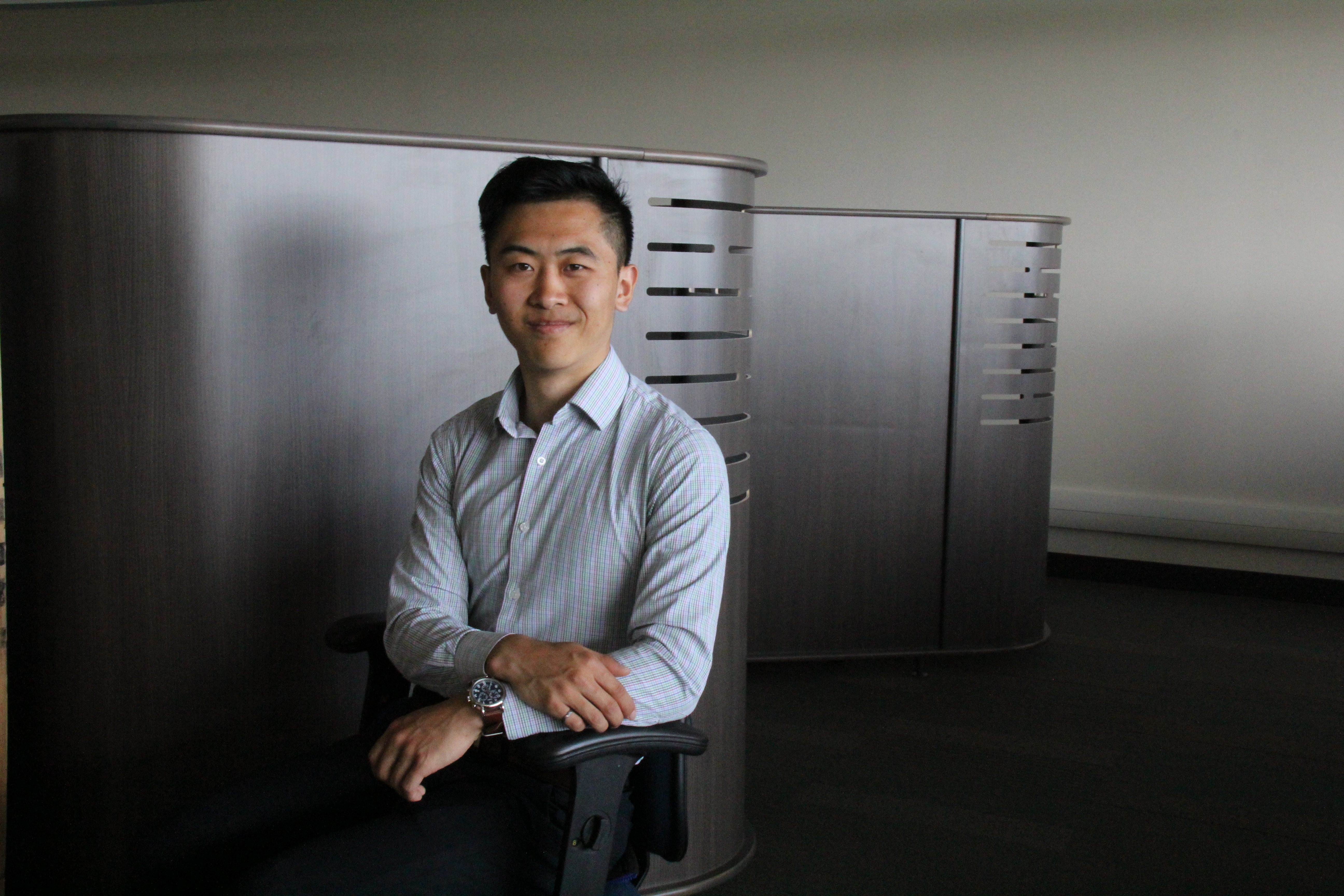
UAlberta mechanical engineering graduate Jason Wang is continuing his studies at the Delft University of Technology in the Netherlands. Wang held an important leadership role on the U of A EcoCar team designing and building zero-emissions cars.
(Edmonton) You'd have never guessed Jason Wang felt out of place as a brand-new engineering student, seeing as he immediately joined two student teams and the Engineering Students' Society, quickly establishing himself as a student leader.
Today, as he graduates with a degree from the University of Alberta's mechanical engineering (co-op) program, he says the fact that he was in uncharted territory sparked his involvement in student life.
"First year kind of overwhelmed me-everything is new and you don't know your way around. You don't even know how to talk to professors," he said. "So I thought it would be a great idea to get involved."
"Getting involved" is putting it mildly. Wang joined two student teams, became president of the First-Year club, took part in the Western Engineering Competition and the Canadian Engineering Competition, and attended the Canadian Federation of Engineering Students' Congress.
It was a little much, he admits. When the dust settled, he chose to focus on designing and building hydrogen fuel cell-powered cars as part of the U of A EcoCar Team.
The idea of working on a zero-emissions car resonated with Wang, who recognized engineering as the quickest path to making real-world contributions to a global energy shift.
"Five years ago, part of me wanted to be designing parts of wind turbines. I wanted to be part of the energy transition, and engineering seemed like the best place to try to learn that," he said.
"I like to work on projects where I can see the outcome, and engineering, I knew, is closer to real-world projects that are applied. I like that aspect of it."
EcoCar has been incredibly successful. Wang drove the team's car at international competitions in the U.S. and was part of a large contingent of team members who competed in the U.K. One of the team's vehicles recorded the energy efficiency equivalency of driving from Calgary, Alberta, to Vancouver, B.C. on one gallon of gas.
On the world stage, the team finished in first or second place in every international competition it entered since 2010-until this spring. At a competition in California, a sensor on Sofie, the team's experimental vehicle, reported a leak in the hydrogen fuel system even though external tests proved otherwise. The car was not able to complete the race despite a promising start.
The team's consumer-style vehicle, Alice, didn't make it to the track because its turn signals weren't working.
"In terms of system complexity, we focused on systems that were more difficult, and in a twist of events, the turn signals didn't work. We had hazard lights and running lights working, but we couldn't turn on just the left or just the right signal. That was the barrier that held us back."
It was heartbreaking. But true to its character, the team insisted on solving these problems immediately upon returning home.
"The team is extraordinary. They're an amazing group of people who put their hearts and minds and time into these projects. We already have two new revisions of electrical boards-two new iterations of the board that failed-with plans for how to diagnose it and check for all the things that might be wrong. To be honest, it happened at a pace that surprises me. You come back from competition and you should relax but the team says 'No, we gotta fix this.'"
What drives them? Wang says that the most obvious reason is the opportunity to build cars. But there's much more to it: The students aren't just building cars. They're building the future.
"At the core of the group, the purpose is that yes, it is to build new cars-but more so it is to build young engineers, young citizens who want to tackle problems they see in the world. It helps you develop not only the knowledge and skills but also the courage to take initiative and be open minded, to listen and not be afraid of speaking up to make world a better place."
One of the team's goals is to help people see the bigger picture of hydrogen fuel and understand how it can serve society. An ambitious and accomplished outreach program helps meet this goal, giving students the opportunity to display their cars and speak publicly about energy challenges and solutions.
And this is where Wang's next challenge lies.
He has been accepted to a master's program at the Delft University of Technology in the Netherlands. There, he'll focus on studies in engineering and policy analysis.
"I want to be able to help people in business and government or in NGOs make decisions about systems they don't know much about. How do we try to make decisions now about things we might have to consider 50 years down the line? The program is centred around grand challenges, including water security, energy transition and the global threat of viruses."
It seems a fitting avenue for Wang, who also earned a certificate in interdisciplinary leadership studies through the U of A's Peter Lougheed Leadership College.
"The two takeaways from the program are that you meet people you would never have met before and you are exposed to these great minds who approach problems differently, and you are humbled by people who have different insights into the world," he said. "And you are also inspired because you see how you can work together to make the world a better place."